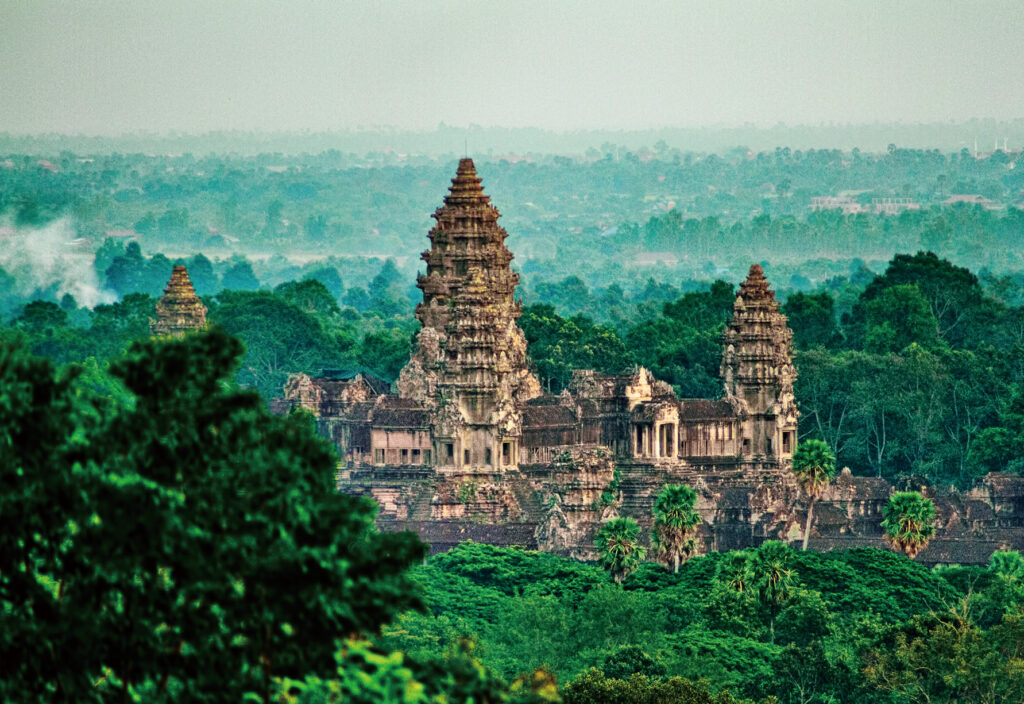In 2016, Cambodia’s economic growth has not slowed while the judicial legislation and reform for achieving ASEAN Economic Integration is in progress. However, there are still numerous problems that cannot be resolved in a single leap and there are still reforms that need to be done.
Of course, there will inevitably be problems occurring behind any development, efficiency, and convenience, as it is difficult to skilfully control both wheels. If we look at the case of human movement, being able to ride a bicycle, a walking person expands their sphere of activity. Then, he’ll want to ride a motorbike which is faster than a bicycle, and finally, he’ll want to drive a car so that it can go together with somebody and it doesn’t matter whether it is rainy or hot. However, behind this matter, the problems of road maintenance and Improvement, exhaust gas pollution, and traffic jams occur. The problems of robbery or other crimes may also occur.
In addition, we also soon hear of the problem of waste. In this country, firstly, there is a lack of awareness that it is not good to throw garbage outside of the trash bin. Recently, I saw a person saying his wishes and letting the fish go to the river. He threw the plastic bag that had contained the fish in the river after releasing the fish. It made me feel uncomfortable. From the early morning, there is somebody who goes around the city to empty each trash bin, but it is not sorted at all. Even where it is sorted, in the current situation, it is not possible to handle each problem, because the only way to dispose of the garbage is landfill. Hence, harmful medical wastes and other hazardous wastes would be landfilled together. Along with the city development, the pond or swamp is landfilled. Therefore, for water that is naturally filtered some 9 km away from the water resources, the natural purification function becomes weaker and weaker. There are problems directly related to daily life such as environmental pollution, soil contamination, and so on. Recently, I asked about the quantity of garbage in Phnom Penh city at a meeting with Cambodian government officials and discovered some surprising numbers.
Population: around 2,130,000 people
Families: around 427,000families
Quantity of waste per day from 1 family: around 2,300 t
Hospitals(Included National, Private and Health Center):around 400places
Quantity of Waste disposed of a hospital daily: around 15t
Factories: around 3,100 places (Quantity of Waste Not available)
Having seen these numbers, we can say that an immediate policy measure should be prioritized to deal with the waste disposal problem.
We cannot be dismissive of countries such as India and China facing the serious problem of air pollution, as other people’s affairs. If we do not try to solve the possible problem ahead of us, first, it may fall into the shadow of any development momentum. In November last year, an MOU on creating a low-carbon tourist city was signed by Siem Reap and Kanagawa Prefecture, Japan. The necessity of solving the increasing problem of electricity shortages, exhaust gas pollution, and so on, in accordance with the increase in the number of tourists that visit Angkor Wat, is at the same level of importance for Phnom Penh Capital, which is experiencing the progress of urbanization. There is business to do immediately, such as utilizing renewable energy like solar energy, promoting electric vehicles or hybrid cars that exhaust less gas, waste recycling, and so on. Currently, where Cambodia is late in addressing these problems, there is a good chance to take measures to become a model for neighboring countries as a clean country, rather than just a temporary postponement of the problem solution.

